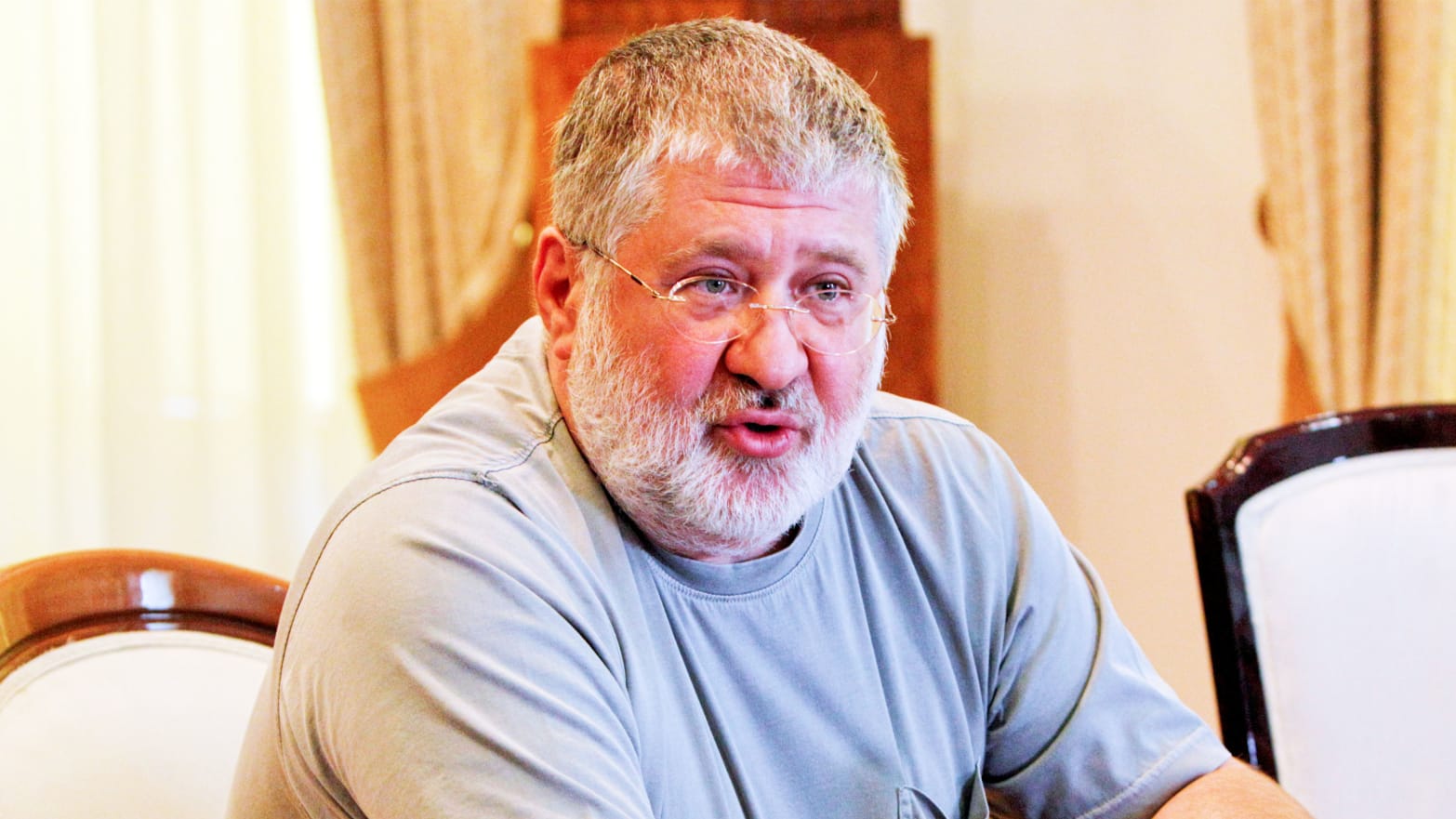The FBI is investigating Ihor Kolomoisky, a Ukrainian oligarch who has sparred with the country’s current president, according to three people briefed on the probe.
The investigators are scrutinizing potential financial crimes, including money laundering, according to the sources, who say the probe is wide-ranging and has been under way for quite some time. Kolomoisky has not been charged with any crime, and a lawyer representing him said he denies any wrongdoing.
“Mr. Kolomoisky categorically denies that he has laundered any funds into the United States, period,” said Mike Sullivan, an attorney with the Ashcroft Law Firm who represents Kolomoisky. “He’s a businessperson. His bank was seized by the government, claiming the bank was on the verge of collapse. That information turned out to be false.”
The U.S. Attorney’s Office in the Northern District of Ohio is involved in the probe, as Kolomoisky has investments there, according to the Kyiv Post.
The oligarch, whose net worth Forbes places at $1.2 billion, lives in Tel Aviv, according to the FT. Law enforcement experts say his residency there could complicate any potential extradition attempt by the United States.
The news comes at a dramatic moment in Ukrainian politics. On March 31, comedian Volodymyr Zelensky won the first round in the presidential election and will face incumbent Petro Poroshenko in a runoff on April 21. Zelensky is famous for starring in a Ukrainian sitcom called Servant of the People, now streaming on Netflix, as a schoolteacher who inadvertently becomes the country’s president.
Kolomoisky owns the TV channel that airs Zelensky’s show, and Poroshenko has called him “a puppet of Kolomoisky.” Zelensky’s ascent, meanwhile, has worried some Western Ukraine-watchers and government officials; the comedian said in 2014 that he would “go down on his knees” to beg Russian President Vladimir Putin to keep his hands off Ukraine, as AFP reported.
Kolomoisky’s reputation is complicated. After the Euromaidan revolution ousted then-President Viktor Yanukovych (known best in the U.S. as a client of Paul Manafort’s), Kolomoisky became governor of an eastern province that bordered territory seized by pro-Russian separatists. He helped fund troops fighting the separatists and, according to The Wall Street Journal, offered a $10,000 bounty for some captured fighters. His efforts won him plaudits.
“He is known for doing things in the gray area,” said Ilya Ponomarev, a Russian politician who voted against the annexation of Crimea and now lives in exile in Kyiv. “On the other hand, he’s the most pro-Ukrainian and anti-Kremlin oligarch. He played a key role in stopping the invasion in 2014.”
Jonathan Brunson, who worked at the U.S. embassy in Kiev and was senior analyst on Ukraine for the Crisis Group, took a different view.
“I think Kolomoisky is super-dangerous,” he said. “He is probably one of the most dangerous oligarchs because he’s one of the ones who’s willing to get his hands dirty.”
Brunson pointed to Kolomoisky’s role in funding the ultra-far-right Azov battalion, a group of Ukrainian fighters alleged to have ties to American white supremacists, per RFE/RL; the State Department has called its political wing a “nationalist hate group,” and human rights workers say it may be a haven for neo-Nazis.
“He was one of the first oligarchs who began to act like a warlord,” Brunson said.
Kolomoisky has a host of enemies. He’s been accused of commissioning contract killings. And in 2016, Ukraine’s central bank nationalized Kolomoisky’s PrivatBank because it didn’t have enough cash. Billions of dollars disappeared from its coffers because it lent so much to Kolomoisky associates, according to the FT. The move was widely viewed in the West as a victory for transparency and good governance, in a country whose politics are impoverished on both counts. It was a flashpoint in Kolomoisky’s relationship with Poroshenko, and many speculate the oligarch backs Zelensky in part because hopes to depose the president who oversaw the takeover of his bank.
Vladislav Davidzon, editor-in-chief of the Odessa Review and previously a correspondent for a TV station Kolomoisky owned, said the oligarch handled the nationalization of his bank in a responsible way.
“When in 2016 the government was ready to nationalize and restructure PrivatBank, which was a tremendous economic liability, there was a serious concern that the irate Kolomoisky would use the bank’s leading position to crater the infrastructure of the Ukrainian banking sector,” he said. “That did not happen. He is a fantastic and picaresque character who by comparison puts about half the villains in James Bond films to shame with his antics.”
Others say the oligarch’s support for Zelensky is an effort at revenge.
“Kolomoisky was just looking for somebody to humiliate Poroshenko, and he found this guy,” Brunson said.
Sullivan, the lawyer who represents Kolomoisky, downplayed his role in Zelensky’s ascent.
“It should come as a surprise to no one that there is serious ongoing corruption in the Ukraine and now the government is at a crossroads in terms of a new election,” he said. “The present regime in the Ukraine is concerned about the potential will of the people in electing a new president. And the current president obviously sees Mr. Kolomoisky as a serious threat to his ability to retain power in the Ukraine. He believes that Mr. Kolomoisky is behind the opposition in Ukraine. It’s the people who are behind the opposition, not Mr. Kolomoisky.”
Anders Aslund, a senior fellow at the Atlantic Council, put it this way: “Kolomoisky is a complete opportunist. He’s only interested in one thing: money.”

